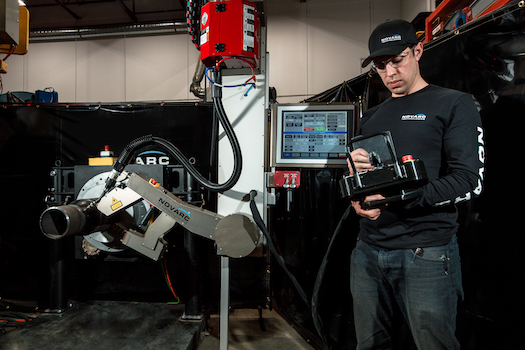The Short Report - July 5, 2023: Canada's tech talent strategy; a new alliance for BC's tech ecosystem network, cleantech's surge in Q1, and more.
 GOVERNMENT POLICY & FUNDING ANNOUNCEMENTS
GOVERNMENT POLICY & FUNDING ANNOUNCEMENTS
Canada's Minister of Immigration, Refugees and Citizenship, Sean Fraser, has launched a tech talent strategy to provide Canadian companies with talent in high-growth industries. The measures include:
- the creation of an open work permit stream for H-1B specialty occupation visa holders in the US;
- the development of an innovation stream under to the International Mobility Program to attract highly talented individuals, options for which include
- employer-specific work permits for up to five years for workers destined to work for a company identified by Ottawa as contributing to industrial innovation goals
- open work permits for up to five years for highly skilled workers in select in-demand occupations
- a return to the 14-day service standard for work permits under the Global Skills Strategy;
- the promotion of Canada as a destination for digital nomads;
- the creation of a STEM-specific draw under category-based selection to issue additional invitations to apply under the Express Entry program;
- improvements to the Start-up Visa Program, including:
- allocating more spots for 2023, with further increases planned for 2024 and 2025.
- Applicants able to apply for a work permit up to three years duration instead of one year.
- Applicants able to apply for an open work permit instead of one that limits them to working for their own startup.
- The three-year open work permit available to each member of the entrepreneurial team instead of only those who are essential and urgently needed in Canada.
- Prioritizing applications supported by venture capital, angel investor groups and business incubators who have capital committed, along with applications supported by business incubators who are members of Canada’s Tech Network. IRCC
The Government of Ontario is investing up to $77 million in projects to help companies adopt, develop and bring critical technologies to market, including 5G, ethical artificial intelligence (AI), blockchain, cybersecurity, and robotics. The funding will go to the Ontario Centre of Innovation (up to $50 million through the Critical Technology Initiatives program to help Ontario businesses develop and adopt critical technologies in mining, agri-food, and advanced manufacturing) and the Vector Institute for Artificial Intelligence (up to $27 million to help companies connect with Vector’s AI engineers, researchers and professionals to accelerate the responsible adoption of ethical AI). OCI
Two of Canada's global innovation clusters, Next Generation Manufacturing Canada (NGen) and DIGITAL, will receive $14 million through Canada's National Quantum Strategy (NQS) to advance the commercialization of products, services, and technologies based on advances in quantum science. The clusters aim to leverage the NQS funding, to attract more than $30 million in total investments and focus their projects in three key categories of quantum technologies, including:
- Quantum Sensors – photonics and transducers, chip-based quantum systems.
- Quantum Networks – quantum communications, quantum key distribution, quantum internet.
- Quantum Computing – quantum software, cryptography, algorithms, information processing, hybrid applications, hardware, and middleware.
The agriculture biotechnology sector in Saskatchewan will receive $9.5 million in funding over the next five years, part of the Sustainable Canadian Agricultural Partnership, the federal-provincial-territorial initiative that supports the agri-food and agri-products sectors in Canada. Ag-West Bio (Saskatoon), an organization connecting businesses, entrepreneurs, and scientists in the province, will use the funding to support its new strategic plan, which aims to provide direct support to innovative companies, foster connections and growth within the ecosystem, promote agriculture biosciences, and develop a high-performing team. Agriculture and Agri-Food Canada
Technology ecosystems builders in British Columbia are establishing an alliance of not-for-profit innovation hubs, known as BC’s Technology Ecosystems Network (BCTEN), leveraging these regional ecosystems to support company-building across BC. The founding members aim to showcase how BC-born companies start, scale, and grow their businesses by accessing resources provided by the network. The alliance builds on the success of the BC Accelerator Network (BCAN), which has contributed to more than $1.2 billion of economic activity. The alliance includes organizations such as Accelerate Okanagan, entrepreneurship@UBC, Hubspace, Foresight Canada, SFU VentureLabs, and VIATEC. UBC
PacifiCan is investing more than $8.1 million to drive innovation in ocean technology, life sciences, and clean energy on Vancouver Island. The funding aims to support businesses and organizations in these sectors, enhancing innovation networks, driving business growth, and creating new jobs and training opportunities. The investment includes $5.7 million through the Regional Innovation Ecosystems program, $2.2 million through the Business Scale-Up and Productivity program, and $250,000 through the Jobs and Growth Fund. Recipients of the funding include the following:
- the South Island Prosperity Partnership, which will receive $3 million to establish the Centre for Ocean Applied Sustainable Technologies, supporting activities led by the Indigenous Prosperity Centre;
- the University of Victoria, which will receive almost $1.9 million for two projects, including $1.2 million for the Proteomics Centre to acquire a flex mass spectrometer to advance drug development and cancer research, and $658,000 to the Pacific Regional Institute for Marine Energy Discovery at the university to explore opportunities for renewable energy sources, such as ocean waves and tidal currents, on Haida Gwaii. PacifiCan
The Government of Quebec is granting $3 million to Université Laval to support its AI-focused institute — L'Institut intelligence et données — and related projects. ULaval will use the funds to encourage research in the sector and offer training, knowledge transfer, and development activities to businesses in the Quebec City region. ULaval institute acting director Denis Laurendeau says that the institute intends to grow and leverage its strengths in order to develop AI in an ethically and socially responsible manner using real-world data and fundamental research. Government of Quebec
FedDev Ontario is contributing more than $1 million to Milton, ON-based digital staffing and HR management platform Jombone to accelerate commercialization of its digital staffing and HR management platform, and expand market reach. The company's platform supports industrial staffing needs in the warehousing, manufacturing, supply chain, logistics and e-commerce sectors. FedDevOntario
VENTURE CAPITAL NEWS
According to Canadian Venture Capital and Private Equity Association (CVCA) data, Canada's cleantech sector experienced a surge in investment activity in Q1 2023, reaching record levels of investment and attracting significant funding. The majority of investments in Q1 were in early-stage deals (series A & B), accounting for 85 percent of total dollars invested and 57 percent of total deals in the sector. Among other key findings from CVCA's analysis:
- In Q1 2023, there was a record-breaking deal count in the Canadian cleantech sector, with $174 million invested across 21 deals.
- The average deal size fell to $8.26 million in 2023, reflecting "cautious investor approach due to ongoing economic uncertainty," yet it is still higher than the lowest average deal size in 2022.
- Ontario emerged as the most active province for cleantech investments in Q1, followed by British Columbia and Quebec.
- The top three cleantech sub-sectors receiving significant investments were energy efficiency, industrial bioproducts, and energy storage.
- Major government funding initiatives in Q1 cleantech investments include the Clean Technology Investment Tax Credit, Clean Hydrogen Investment Tax Credit, Canada Growth Fund, Strategic Innovation Fund, and BDC Capital's Climate Tech Fund and Sustainability Venture Fund.
- Notable seed and early-stage investments in Q1 2023 include companies like 3E Nano, Adaptis, Airex Energy, PH7 Technologies, Graphite Innovations & Technologies, and Eavor Technologies.
The University of Waterloo has approved an investment of up to $5 million from its endowment into the Velocity Fund II (VFII), a new venture capital fund spun out of the university's Velocity incubator. This makes UWaterloo the first Canadian post-secondary institution to invest from its endowment into a VC fund launched by its affiliated startup incubator. The fund is operated independently by general partners Ross Robinson and Akash Vaswani, aiming to provide early-stage support for software and deep technology startups emerging from Waterloo's startup ecosystem. UWaterloo
Communitech (Kitchener) is accepting applications for the third cohort of its Fierce Founders Uplift program, which is aimed at early-stage businesses from equity-deserving groups. Successful applicants will receive a $10,000 grant from partners such as the Business Development Bank of Canada, Google for Startups, and the Government of Ontario, along with personalized guidance from Communitech growth coaches. Participants in Fierce Founders Uplift have the opportunity to apply for the Fierce Founders Intensive Track, where they can access $50,000 in matching funds and work closely with Communitech growth coaches. The application deadline is July 12. Communitech
HEALTH NEWS
Minister of Mental Health and Addictions and Associate Minister of Health Carolyn Bennett has announced a research investment of nearly $3 million through the Canadian Institutes of Health Research to support three clinical trials that will examine psilocybin-assisted psychotherapy as a potential treatment option for alcohol use disorder, treatment-resistant depression and end-of-life psychological distress in advanced-stage cancer patients. "These three newly funded clinical trials represent the careful research that is urgently needed to build upon preliminary findings, and guide clinical practice in Canada," said Dr. Samuel Weiss, the scientific director of the Canadian Institutes of Health Research Institute of Neurosciences, Mental Health and Addiction. CIHR
McMaster University has partnered with the Chan Zuckerberg Initiative (CZI) to improve scientists' access to antimicrobial resistance (AMR) data through the McMaster-developed Comprehensive Antibiotic Resistance Database (CARD). The collaboration has resulted in the creation of an AMR module for CZI's open-access metagenomics platform, CZ ID, which will allow researchers worldwide to track and investigate drug-resistant bacteria (superbugs). McMaster
The Government of Canada is gathering input regarding proposed amendments to the Radiation Emitting Devices Regulations related to laser products in Canada. The consultation is open for public participation from July 1 until September 14, with specific stakeholders such as academic institutions, test and certification labs, standards development organizations, laser device users, manufacturers, importers, retailers, and related trade associations being encouraged to participate. GOC
THE GRAPEVINE
Canada's National Research and Education Network (CANARIE) president and CEO Jim Ghadbane is retiring after nearly ten years of service. Kathryn Anthonisen, an executive who joined CANARIE 13 years ago, will be the new president and CEO, effective July 31, 2023. Under Ghadbane, CANARIE's mandate expanded to include cybersecurity of the research and education sector, with the launch of the Cybersecurity Initiatives Program in 2020. Ghadbane also "led the transformative evolution of CANARIE’s services, including expanding the reach and resiliency of the CANARIE Network, enabling the connection of Nunavut to the National Research and Education Network, forging a strong partnership with the newly created Digital Research Alliance of Canada, and championing investments in software tools to accelerate scientific discovery and manage data generated from research." CANARIE
Dr. Jim House from the University of Manitoba has been named the new Manitoba Strategic Research Chair in Sustainable Protein. The Manitoba government has invested $1.5 million in support of the chair, which has a six-year term and is based in the Department of Food and Human Nutritional Sciences in the Faculty of Agricultural and Food Sciences. House is an internationally recognized expert in nutritional sciences; he will lead and facilitate original research in sustainable protein innovation in alignment with the Manitoba Protein Advantage Strategy, which aims to attract new investments of $1.5 billion and create 1,550 jobs by 2025. uManitoba
Dr. Bheeshma Ravi has been appointed president of the Canadian Orthopaedic Research Society (CORS). Ravi is known for his expertise in orthopaedic surgery and his research dedicated to enhancing patient outcomes following total joint replacement and other orthopaedic procedures. In his role as CORS president, Ravi will facilitate interdisciplinary research collaborations, build partnerships with musculoskeletal research societies globally, support excellence in musculoskeletal research through recognition and funding, and inspire emerging scientists and clinicians to pursue musculoskeletal research. Sunnybrook
Dr. Declan Ali has been named the new dean of the Faculty of Science at the University of Alberta for a five-year term effective July 1. Ali served as associate dean of research, acting associate vice-president, and chair of the Department of Biological Sciences. Ali's vision for his role as dean includes a focus on recruiting diverse talent, enhancing teaching and curriculum with an Indigenous perspective, and fostering philanthropic partnerships to support the faculty's research and educational endeavors. U of A
R$
Events For Leaders in
Science, Tech, Innovation, and Policy
Discuss and learn from those in the know at our virtual and in-person events.
See Upcoming Events
You have 0 free articles remaining.
Don't miss out - start your free trial today.
Start your FREE trial Already a member? Log in
By using this website, you agree to our use of cookies. We use cookies to provide you with a great experience and to help our website run effectively in accordance with our Privacy Policy and Terms of Service.





